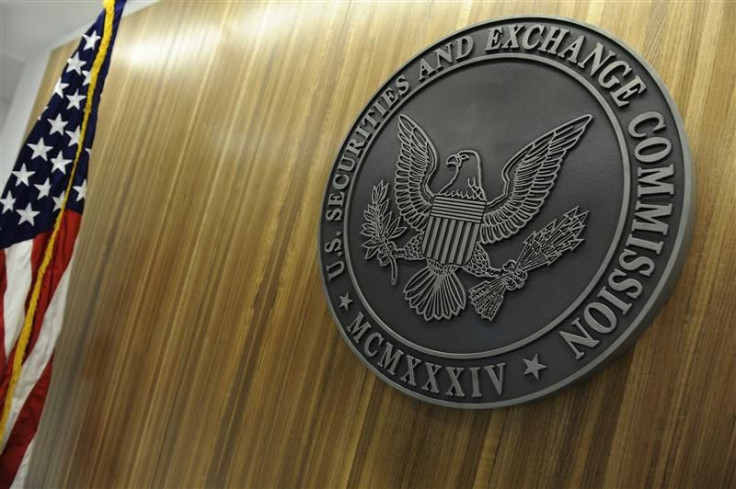Occupy Wall Street Group Offers Detailed Critique of Volcker Rule

Methods the Occupy Wall Street movement has used to push its message of economic fairness are familiar to most observers. There are the encampments, mic checks, rallies and protests outside of banks or Republican presidential campaign events.
But one group formed from the Occupy movement has taken a less-visible approach: submitting to the U.S. Securities and Exchange Commission a lengthy comment on the Volcker Rule, a key piece of the 2010 Dodd-Frank financial reform law that will ban banks from using their own money to make speculative bets, a practice known as proprietary trading.
Occupy the SEC Monday took advantage of the open public comment period typical in federal rule-making and submitted a 325-page letter outlining ways the finalized Volcker Rule can be a strong curb on the kind of proprietary trading that helped bring down the U.S. economy in 2008.
Though a rule's public comment period is a venue for industry stakeholders and trade groups, Occupy the SEC member Alexis Goldstein said in an interview the group's letter gives it a voice in the rule-making process "that's not the voice of the banks, not the voice of the financial lobby."
Occupying the Volcker Rule
Occupy the SEC started after Goldstein, whose Wall Street background includes Deutsche Bank and Merrill Lynch, held a teach-in during a general assembly -- a meeting of Occupy demonstrators and groups -- in New York. Goldstein met others interested in banking reform and policy, including attorney Akshat Tewary.
Well-versed in administrative law and securitization, Tewary knew the SEC was holding a public comment period on the Volcker Rule. A group of three then formed to discuss the rule in what they call a "book club" format.
"The subject matter for the Volcker Rule matched with what a lot of the Occupiers were trying to achieve," Tewary said in an interview. "Hopefully, it's going to turn banks away from the speculative activities they have been engaging in thus far."
Occupy the SEC members say the group had about a dozen or so members at its peak and currently has seven core members; Corley Miller, George Bailey, Caitlin Kline, Elizabeth Friedrich and Eric Taylor, along with Goldstein and Tewary, are listed in the group's SEC letter.
The group's magnum opus addressed in detail more than 300 questions the SEC put out as part of the public comment process, as well as including their own markup of the Volcker Rule as currently proposed.
"Like much of the 99%, we have bank deposits and retirement accounts that are in need of protection through vigorous enforcement of the Volcker Rule," the letter says. "Prohibiting banking entities from engaging in proprietary trading and banning their sponsorship of covered funds are key elements to regulating the financial system and giving force to the Dodd-Frank Act."
Some Strong Rhetoric
Occupy the SEC's letter certainly contains some strong rhetoric -- "the banking lobby exerted inordinate influence on Congress and succeeded in diluting the statute, despite the catastrophic failures that bank policies have produced and continue to produce" is one instance.
But the letter's contents are deeply detailed and attempt to explain what lawmakers intended when they passed Dodd-Frank and how the proposed Volcker Rule falls short.
The group laments the lack of "bright lines" to determine if a financial institution is engaging in proprietary trading the rule seeks to ban. Further, the deterrent against proprietary trading is too weak, the letter says. The regulatory agencies have the authority to impose fines under other federal banking statutes, but nothing in the proposed Volcker Rule specifies an automatic penalty triggered when violations are found.
There are also concerns that the Volcker Rule will continue to allow practices that will permit proprietary trading.
For instance, the group wants the elimination of a loophole that allows for proprietary trading through repurchase agreements called repos, in which a bank sells a security with an agreement to buy it back later. This can serve "as a conduit for proprietary trades," the letter says.
The letter also explains the downside to another loophole -- set in the text of Dodd-Frank law -- that will allow banks to be market makers, in which a firm with an inventory of securities will sell to an interested buyer.
The loophole is enshrined in the text of the Dodd-Frank law, so the rule will determine acceptable market-making practices. Nonetheless, Occupy the SEC rejected the idea that banks "have some inherent role in proper market making."
New Way to Occupy
If public comment periods are the domain of industry insiders and lobbyists, it is because federal rule-making is a tough nut to crack for the lay person.
The Occupy the SEC members, however, have taken the broader Occupy message -- ending policies they see as beneficial to the 1 percent at the expense of the 99 percent -- to the regulators tasked with policing Wall Street and preventing another economic collapse.
And though the broader movement emphasizes agitation from outside the halls of power, Occupy the SEC's message is still familiar with a portion of the movement's supporters, who express sentiments running the gamut from Eat the Rich to Bring Back Glass-Steagall.
"We have an understanding of direct action that is not just camping and beating drums," said Taylor, one of the Occupy the SEC members, "but also using the tools that already exist for participatory processes."
© Copyright IBTimes 2024. All rights reserved.





















